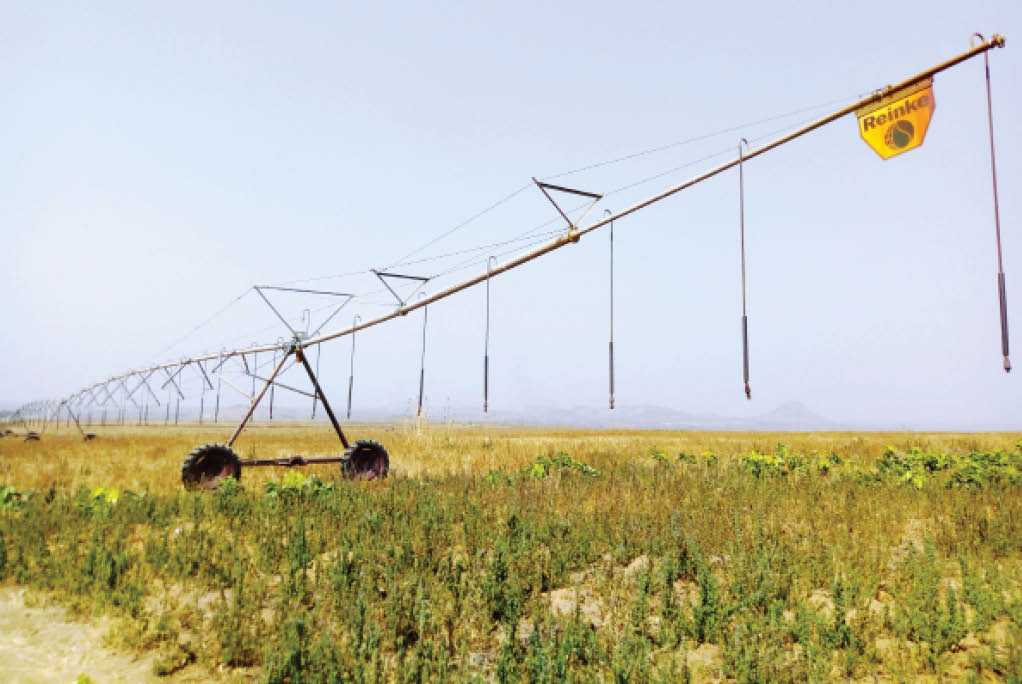The Gurara irrigation project, located in Jere Local Government of Kaduna State, few kilometers from Abuja, the Federal Capital Territory, and its accompanying components, were conceived to help in the area of transformation from intensive agriculture to modern industries, with an expected production of 4,500 tonnes of rice, 6,700 tonnes of maize, 11,000 tonnes of melon and 18,000 tonnes of fruits per circle, according to a former minister of water resources, Mrs Sarah Ochekpe.
The project can produce over 100,000 metric tonnes of food in three circles per annum if fully developed and utilised.
The federal government awarded the Gurara Multipurpose Dam Project in 2001 at an initial cost of N15.1 billion to transfer water from Gurara Dam to the Lower Usuma Dam, but the cost was increased from N38.5 billion to N54.3 billion in 2007 when the hydro-power plant and the pilot irrigation farming projects were added.
Nestlé partners Africa Food Prize on food security, climate change
AGRO SOLUTIONS: Vietnamese scientist discovers anti-cancer agents from rice husks
When fully developed, the project has a capacity of 12,000 hectares to accommodate both smallholder and commercial farmers.
The project was carried out by two companies: Salini Nigeria Limited developed 2,000 hectares while SCC Nigeria Limited managed 4,000 hectares.
SCC Nigeria Limited was in charge of the project’s water distribution system, which included a secondary distribution system, an on-farm distribution system that covers 4,000 hectares of land, a 29-kilometer (1,400mm steel) pipeline, and a reservoir with a capacity of 100,000 m3.
Five different types of irrigation systems are included in the irrigation project’s design: pivot irrigation, pressure irrigation, and irrigation with fixed sprinklers, irrigation with drippers and irrigation with mobile sprinklers.
Our reporter who visited the site on Saturday saw how much the project has degenerated. The access road to the site is currently in poor condition, and majority of the motorised pivots are no longer operational.
The project has failed to meet expectations, and many farmers who first travelled to the site to plant crops left due to a variety of problems that indicate that the federal government is losing money on its investment.
Issues that keep farmers away
The failure of the Federal Ministry of Water Resources to solve the project’s present difficulties has resulted in its grounding. Theft of some parts of the system for motorised centre pivots is one of the problems.
The theft of cables and other component parts of the motorised centre pivots and sprinklers has left majority of the systems non-functional.
For some farmers who still plant grains and legumes, the cost of production is caused by what they considered a major construction error. This has to do with the scrapping of top soil, which has the nutrients during the project construction leaving the red inner soil that hardly supports crop cultivation.
Due to poor yields from depleted soil, the requirement for significant amounts of fertiliser, and the steep cost of maintaining good soil texture, many farmers who tried farming gave up after their first or second year.
According to information obtained by Daily Trust on Sunday, before the project was put into service, SCC Nigeria Limited, the company that built it, initially supplied security for the facilities but withdrew its personnel after the Federal Ministry of Water Resources took charge. The project, however, has remained a shell of what it was since government took over in 2014.
The initiative to grant 1,000 hectares for commercial farming has not fully taken off, and the federal government has urged the farmers to leave.
The project has been included on the list of public-private partnership (PPP) projects available for the 2016/2017 season by the Infrastructure Concession Regulatory Commission.
The agreement called for “operations and maintenance of about 1,000ha of commercial agriculture irrigation infrastructure at Gurara 1 Dam, Azare-Jere, Kaduna State to lease the irrigation facilities constructed by the federal government to private investors for best use at the cost of N2.1 billion.
Since the Federal Ministry of Water Resources, the project’s owner, instructed farmers to stop cultivating few years ago because of its intention to transfer the irrigation to a private business that would operate the project more effectively, nothing practically has happened on the ground as most of the site is covered by stunted grass.
Government’s inability to maintain the facilities is disappointing for many of local farmers.
According to Abdullahi Sani, a resident of Jere town, the initial deal was to enable the host community access to some areas of the irrigation, but that has not happened.
He claimed that during the 2014/2015 growing season, numerous farmers visited the location and both small and middle scale farmers were actively growing vegetables and maize, but that activity has since stopped.
Government has been emphasizing on agricultural diversification and employment, but the initiative, if used properly, has the ability to produce jobs and feed Abuja’s population.
He stated that if the initiative is used properly, the majority of Abuja’s youth may be persuaded to visit the location, which would spur development and lead to the emergence of agricultural processing plants all around.
Mr Dan Auta, a young vegetable farmer and seller at Jere junction, near the irrigation site, said many Hausa community who enjoyed farming could crowd the site from their bases in Abuja. Many farmers would like to grow maize but are unable to. The few locals who are obstinately engaged in it do it throughout the rainy season, but nothing much during the dry season.


